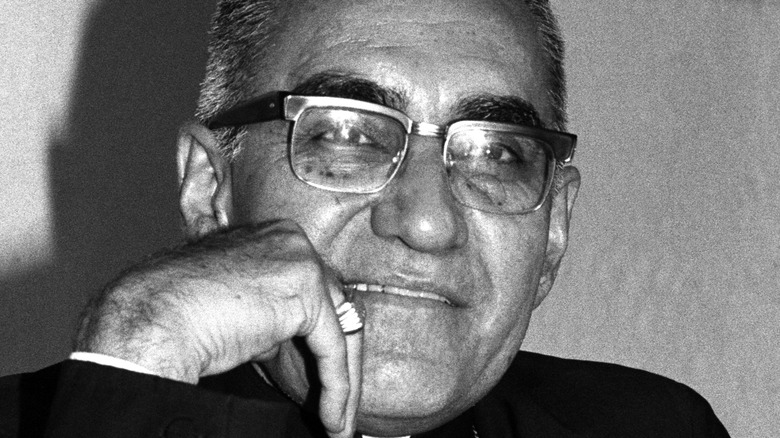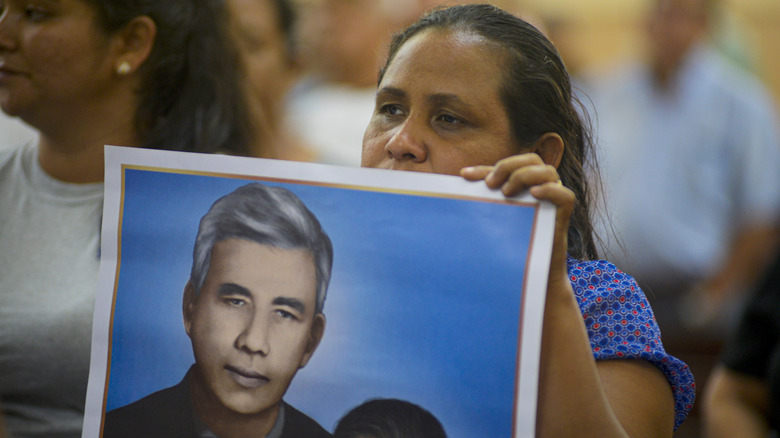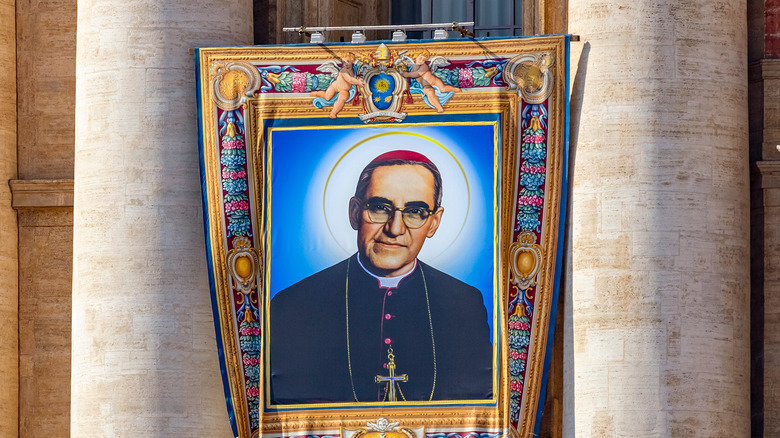St. Oscar Romero's Life Was Forever Changed By The Murder Of His Colleague
Saint Óscar Romero was an archbishop during the late 1970s in El Salvador who publicly opposed his country's brutal dictatorship and later its military-civilian junta. General Carlos Humberto Romero (not related to St. Óscar Romero) rose to the office of the Salvadoran presidency in 1977 amid possible voter fraud and deadly right wing violence against his opponents (via Britannica). The General then led a repressive state, murdering and imprisoning communists, leftists, and critics; many of whom were from the lower class. Farmers, church leaders, journalists, and other civilians were among the victims. Left wing revolutionary groups soon battled the dictator's military forces. Into the fray stepped Archbishop of San Salvador Óscar Romero, calling for peace, denouncing the regime, and defending the poor.
Every Sunday at Mass, Romero would educate parishioners on ordinary people who were killed or kidnapped by the regime (via The New Yorker). He would describe massacres by the military, publicly demanded an end to the terror (and the left wing guerilla response), and warned politicians as well as the rich that winning peace and addressing inequality went hand-in-hand. Romero's bravery attracted the entire nation's attention, and his words swept across newspapers, television, and radio.
What spurred such a stance? It had much to do with the death of Father Rutilio Grande.
The Miracle of Rutilio Grande
Rutilio Grande was a priest who helped Salvadoran farm workers organize in Aguilares (via American Magazine). The plight of the poor and the Jesuit focus on social justice led Grande to help farmers push for better living and working conditions. Organizing unions, talks of justice, and land reform were associated with the left and with communism, and this brought the death squads, backed by the military and the wealthy. Farm workers were murdered and their bodies were put on display. Grande was shot to death in his car on March 12, 1977, a few weeks after the election of El Salvador's dictator.
Grande and Óscar Romero had long been friends. Romero left San Salvador and joined the farm workers in mourning and prayer at the funeral Mass. According to American Magazine, the archbishop, who was fairly conservative and had generally avoided politics, then kicked off his crusade against the regime. He declared that he would no longer attend government events and started castigating the state from the pulpit. One miracle Grande performed, Pope Francis recently said, was awakening Óscar Romero.
The Murder of Oscar Romero
The martyrdom of Rutilio Grande then led to the martyrdom of Óscar Romero. Grande's death had a huge impact on the archbishop, making the wider horrors personal (via The University of Notre Dame), and perhaps molding Romero into the type of person who would also die for the cause of justice. The death threats began as soon as the clergyman spoke up; he was promised 30 bullets in the face and chest. Now an enemy of the state, other powerful Catholics turned against him, according to The New Yorker.
The day before Romero was murdered, his radio-broadcast homily instructed soldiers to disobey orders, enraging the military (via The New Yorker). "In the name of God," he pleaded, "in the name of this suffering people whose cries rise to Heaven more loudly each day, I implore you, I beg you, I order you in the name of God: Stop the repression!" On March 24, 1980, Romero was killed by a sniper while preaching at his church.
Romero was canonized as a saint in 2018, and, in 2022, Rutilio Grande was beatified; a step towards sainthood (via Georgetown University).


